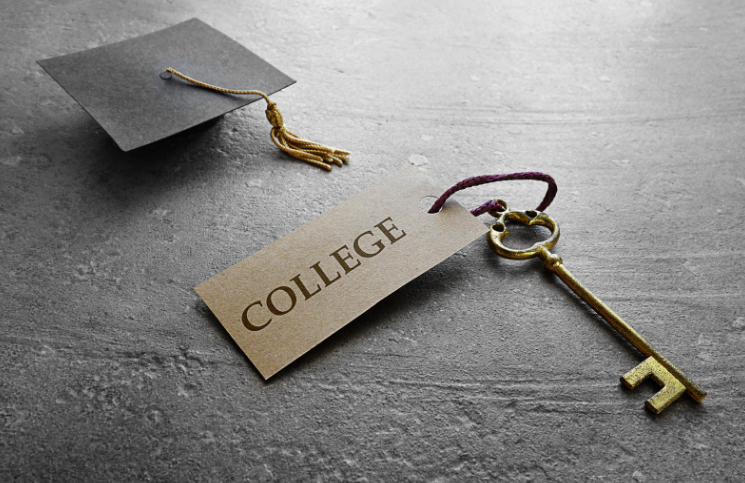A Promising Pathway to College and Careers
Bridgewater State University, B.M.C. Durfee High School and JFY’s New Partnership
by Eileen Wedegartner, Blended Learning Specialist
The college admissions scandal that broke in March kept unfolding through the weeks and months like an origami of shame, exposing story after sordid story of gross inequity in the college admissions process.
As the national networks uncoiled twisted tales of bribery and deception that famous parents of means had braided to get their kids into elite colleges, local news stations were swarmed by flocks of ordinary people calling in anonymously to admit that they had written their children’s essays for them.
Across social media people jumped from the scandal of outright fraud that resulted in at least 50 indictments, 33 of parents, to talk about the embedded injustice that is uncritically accepted. Students from wealthier homes and communities get SAT/ACT prep, plus essay prep and editing. They get extra time on the tests because their parents know how to demand it. They go to better elementary and secondary schools. Their summers are professionally programmed. They have access to more sports, more extracurricular enrichment and organized community service projects, some that involve going to third-world countries. All these activities develop a wide variety of skills and look great on college applications.
The scandal took hold and continued for many weeks. I was puzzled that while more and more colleges are closing their doors, there does not seem to be room to accommodate everyone who wants to get into higher education. This is despite near universal agreement that higher education is necessary for young people to be productive citizens in society and to participate fully in our economy.
We may see it as unfair that some students have access to activities, schools, tutors and programs that give them an advantage in the process, but I worry about conflating the issues. At the end of the day, illegal or not, students are well aware that there is something amiss in the college game. Stories like these make it understandable that so many students from less advantaged backgrounds feel that getting into and through college is a Sisyphean task.
So, while the scintillating scandals make for endless commentary about the gross inequities in the system, I would like to shine a light on some unsung people who are trying to level the playing field.
About 10 years ago I attended some conferences and read David Conley’s book College Knowledge that details the skills students need to be successful in college. One of the important conversations that leaders were having at the time centered around making senior year more meaningful.
I soaked in all the information. I brought the AP curriculum and the Writing 101 syllabus to my own senior writing class, doing what I could to mimic the college readiness process. The course included perfecting the college essay, understanding the importance of a college syllabus, and how to write at the higher level. Of course, like many teachers, I also struggled with seniors who checked out after January 1.
This year, thanks to the initiative of state leaders, the hard work of local high schools, the commitment of higher education partners and the support of non-profits, significant steps are being taken to bridge the high school-college gap in a way that creates new opportunity and reduces inequity.
A new partnership between Bridgewater State University, Durfee High School in Fall River, and the Boston non-profit JFYNetWorks is making college courses accessible to students while they are still in high school.
I happen to know something about this partnership because I am the JFYNetWorks link in the drive chain.
The pilot that started this year connects the two essential segments of the education pipeline—high school and college—and makes senior year more meaningful for the students. It is exciting to be part of a process in which we are creating a new sub-system, working out the kinks, learning from our experience, and taking concrete action to level the playing field. The Durfee students who are taking Bridgewater courses in high school are eager, ready to learn and appreciative of this change in a system that has too often been stacked against them.
A new study by MassINC, Investing in Early College, describes 34 other programs around the state that are bringing high school students to college campuses, and college courses to high school classrooms.
While many are lamenting the flaws in the system, I would like to take a moment to remember the counsel of Mr. Rogers and “look for the helpers.” They are out there everywhere, dedicated people doing constructive things while rarely making headlines. MassINC calls early college “our most promising pathway.” Bridgewater State, Durfee High School and JFYNetWorks agree.





